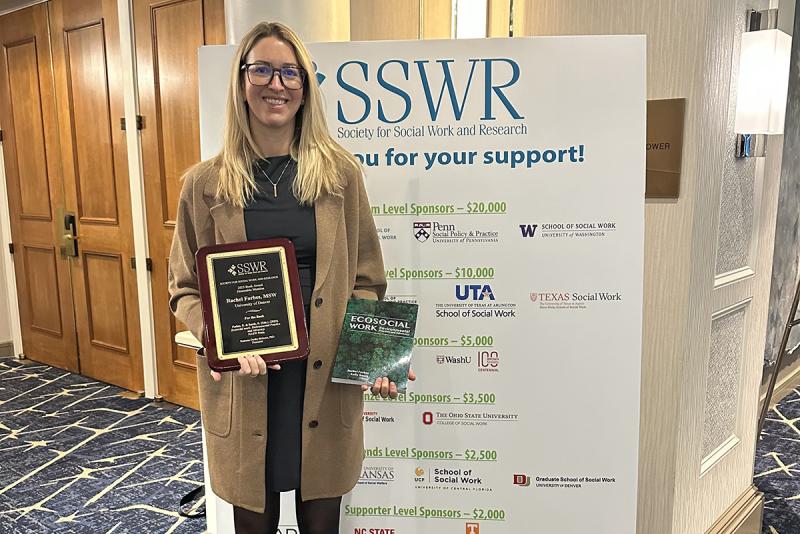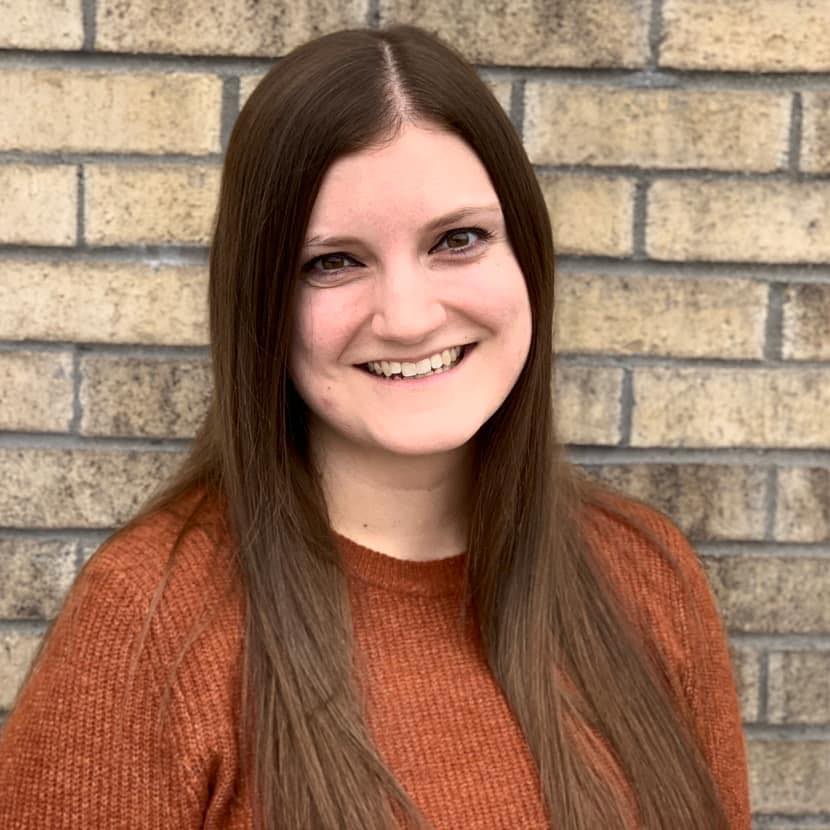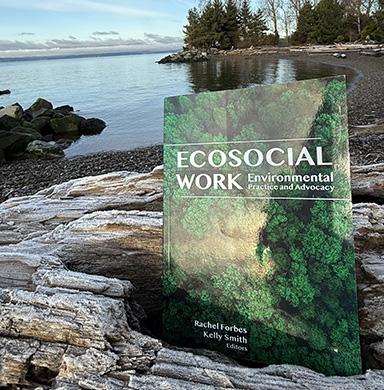On the Front Lines of Climate and Care: How Social Work Is Evolving With the Ecosystem
Professor of the Practice Rachel Forbes talks about the growing field of ecosocial work and the role social workers can play as climate change intensifies.

When a wildfire cut off the mountain town of Glenwood Springs from food, fuel, and medical care, Rachel Forbes saw firsthand how climate disasters ripple through communities—and why a new kind of social work was needed to meet the moment.
Five years later, she is a leading voice in the field of ecosocial work, helping to cultivate and expand a growing community. A professor of the practice at the University of Denver, her current research and teaching focus on ecological justice in social work practice and the impacts of climate change on mental health.
Forbes, who is director of the university’s Western Colorado Master of Social Work (MSW) program, believes that social workers have always been on the front lines of environmental issues, but there is much more work to be done.
Part of that work for Forbes includes co-editing Ecosocial Work: Environmental Practice and Advocacy, which was published in 2023 and encourages social workers to advocate for environmental justice. Forbes was recognized earlier this year with the 2025 Society for Social Work and Research Book Award Honorable Mention for her work on the book.
The DU Newsroom caught up with Forbes to chat about defining ecosocial work, how she hopes the book will impact education and policy, and how social workers can assert themselves as the world faces continued ecological and climate disruption.
This interview has been edited for length and clarity.
What is ecosocial work?
The term, in general, describes social work that focuses on environmental issues and advocates for addressing the disproportionate impacts of environmental harm, especially within communities that have already been historically or systematically oppressed and marginalized.
As the climate crisis accelerates, there's a lot of overlap for social workers in the areas of ecosocial work, climate justice work, climate advocacy, and engaging in interdisciplinary teams where climate science is at the forefront of the work.
What is a historical example of social workers intervening in environmental issues?
My co-editor, Kelly Smith, and I lay claim to the idea that, since the earliest days of social work practice, social workers have engaged and intervened where environmental issues are present. One of the examples we give goes back to the roots of our profession, when social workers expressed concern about sanitation systems and waste and the environmental injustice surrounding clean, fair, and supportive housing. So as far back as early settlement housing—which would be like supportive housing today—social workers have been voicing concern about the environment.
What is your definition of environmental justice?
To me, it’s about human communities and work that focuses on those communities most burdened by environmental harms. For example, we think about the fair distribution of environmental benefits and burden—making sure that there is equal access to benefits like parks and recreation opportunities and clean air as well as equal protection from things like toxic dumping or highway noise or being in a food desert.
In the Graduate School of Social Work, we use terms like “ecological justice” or “eco justice,” which extend beyond the human-centered approach to non-human entities as well, thinking about how all ecosystems—plants, animals, and insects—are interdependent and subjects of injustice.
Your work centers largely around Western Colorado, where you live and work . What are some examples of how environmental issues in your community create unique social challenges?
The Western Colorado MSW program is in Glenwood Springs, which sits right along I-70 about three hours from the Denver campus. To get here, you have to go through Glenwood Canyon, which is a beautiful drive—and a fantastic ecosystem, with all kinds of plants and animals, and the Colorado River. People come from all over the country to view it, to see it, to hike it and enjoy it.
We had a really terrible fire in the canyon in 2020. When you have a community that is situated in a valley where I-70 is the main vein that takes goods, services, people, and resources in and out of the community—a fire like that was really devastating for the economy. The highway was closed, we couldn't get critical staff in and out to the hospital, our hospitals were understaffed, and we had food shortages and fuel shortages—it was a really big deal.
Then there were the mental health impacts, both for individuals and communities. A lot of people were so sad about the loss of ecosystems, they were grieving the loss, they were scared, I would even use the word traumatized. Many of them were really anxious about the implications of this and how long it would last.
It was something that really defined my practice and research in environmental justice and climate work and social work. It helped shift my thinking about these issues—realizing we don't have enough resources or enough research to support the negative mental health impacts associated with climate change. It helped me go deeper into some of the mental health implications of climate and environment and what that looks like, along with recognizing the emerging work being done on eco-distress, eco-anxiety, and eco grief.
How do you hope your book will impact social work education and policy?
We want to build community among social workers who are interested in environmental issues. I'm hopeful that the relationships we have built by doing the book will lead to more projects, better research, more intervention.
The other thing we wanted to do was share examples of what ecosocial work can look like. We have folks doing community gardening with refugees, we have folks organizing older adults in Detroit around ecological issues. I'm hopeful that the book will inspire people to be creative, to find their lane, to know that all this work is important—figuring out your place in the work is really critical. When we think about the climate crisis, we have to really be creative, and we have to make room for different ways of practicing and knowing and being.
How can social workers assert themselves as we continue facing ecological and climate disruption?
One thing that I tell students is to lean into your identity as a social worker and know who you are as a professional. We have really unique, amazing training that teaches us to think in systems, to understand policy implications, and to know how to work one on one with individuals.
Social workers often work in interdisciplinary or multidisciplinary teams, and when we work alongside city planners and engineers and public health officials and other climate scientists, they don't necessarily have all these same skills and training we have, so own it, bring that to the table. Be the social justice person in the room, so when city planners and engineers are thinking about shoring up infrastructure as a climate resilience strategy, make sure you're chiming in: What are the implications for disproportionately impacted communities? Have you gotten community input on this project?
It’s about what we all bring to the table that's different and unique and how those pieces fit together to solve some of these grand challenges and big issues related to climate and the environment.
GSSW is the first known graduate school of social work to offer an MSW Certificate in Mental Health for Ecological Resilience and Adaptation. Learn more about the certificate here.





